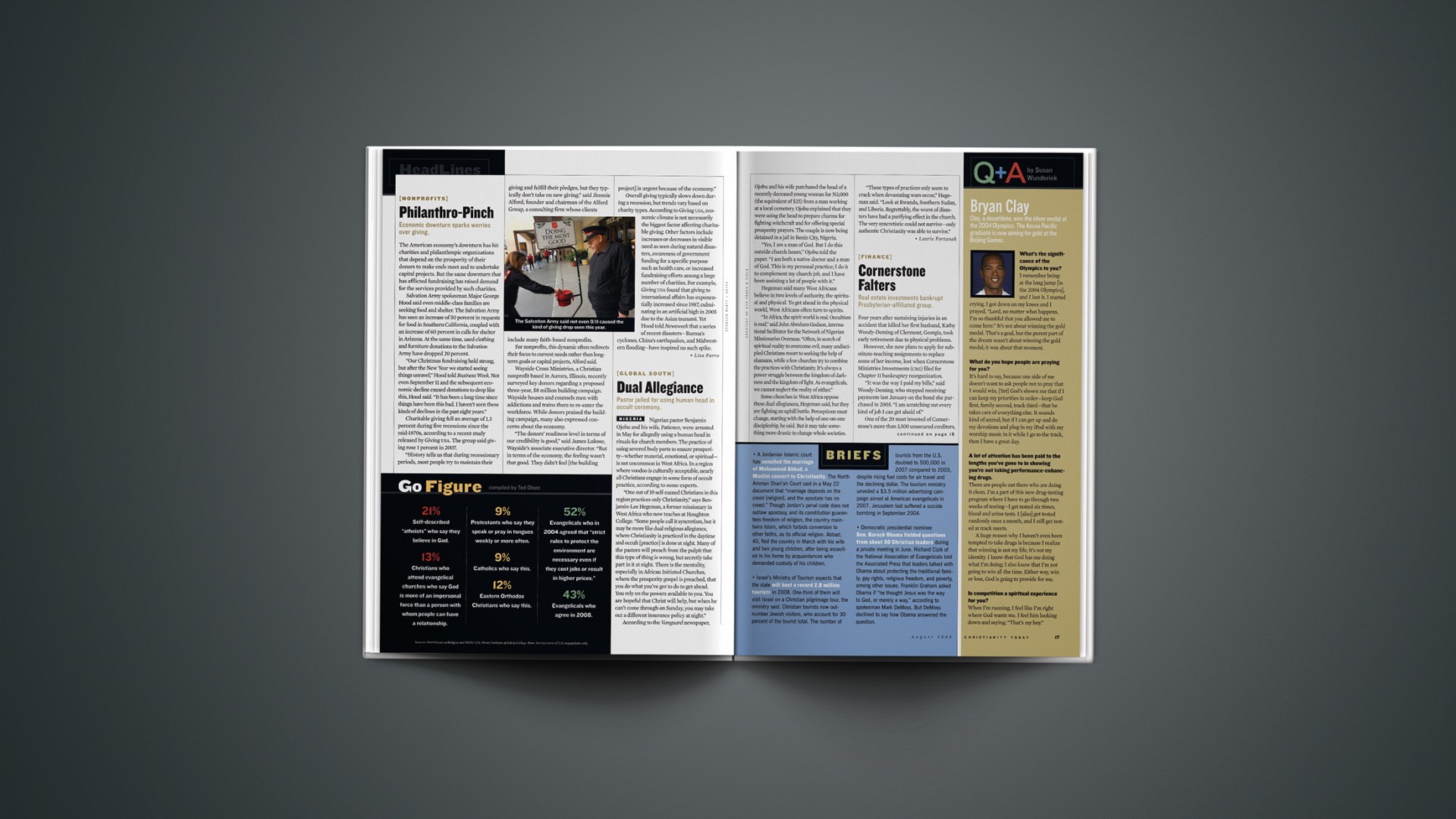The American economy’s downturn has hit charities and philanthropic organizations that depend on the prosperity of their donors to make ends meet and to undertake capital projects. But the same downturn that has afflicted fundraising has raised demand for the services provided by such charities.
Salvation Army spokesman Major George Hood said even middle-class families are seeking food and shelter. The Salvation Army has seen an increase of 50 percent in requests for food in Southern California, coupled with an increase of 60 percent in calls for shelter in Arizona. At the same time, used clothing and furniture donations to the Salvation Army have dropped 20 percent.
“Our Christmas fundraising held strong, but after the New Year we started seeing things unravel,” Hood told Business Week. Not even September 11 and the subsequent economic decline caused donations to drop like this, Hood said. “It has been a long time since things have been this bad. I haven’t seen these kinds of declines in the past eight years.”
Charitable giving fell an average of 1.3 percent during five recessions since the mid-1970s, according to a recent study released by Giving USA. The group said giving rose 1 percent in 2007.
“History tells us that during recessionary periods, most people try to maintain their giving and fulfill their pledges, but they typically don’t take on new giving,” said Jimmie Alford, founder and chairman of the Alford Group, a consulting firm whose clients include many faith-based nonprofits.
For nonprofits, this dynamic often redirects their focus to current needs rather than long-term goals or capital projects, Alford said.
Wayside Cross Ministries, a Christian nonprofit based in Aurora, Illinois, recently surveyed key donors regarding a proposed three-year, $8 million building campaign. Wayside houses and counsels men with addictions and trains them to re-enter the workforce. While donors praised the building campaign, many also expressed concerns about the economy.
“The donors’ readiness level in terms of our credibility is good,” said James Lukose, Wayside’s associate executive director. “But in terms of the economy, the feeling wasn’t that good. They didn’t feel [the building project] is urgent because of the economy.”
Overall giving typically slows down during a recession, but trends vary based on charity types. According to Giving USA, economic climate is not necessarily the biggest factor affecting charitable giving. Other factors include increases or decreases in visible need as seen during natural disasters, awareness of government funding for a specific purpose such as health care, or increased fundraising efforts among a large number of charities. For example, Giving USA found that giving to international affairs has exponentially increased since 1987, culminating in an artificial high in 2005 due to the Asian tsunami. Yet Hood told Newsweek that a series of recent disasters—Burma’s cyclones, China’s earthquakes, and Midwestern flooding—have inspired no such spike.
Related Elsewhere:
Our recent articles on money and business include:
Overturning the Money Tables | Rusty Leonard is a financial manager who wants to change how you give and invest. (July 11, 2008)
Cornerstone Falters | Real estate investments bankrupt Presbyterian-affiliated group. (July 10, 2008)
Blessed Insurance | Many pastors lack access to adequate health benefits. (July 7, 2008)










